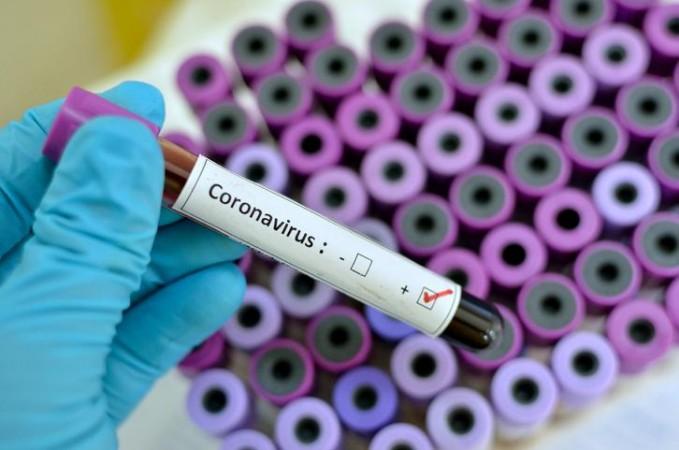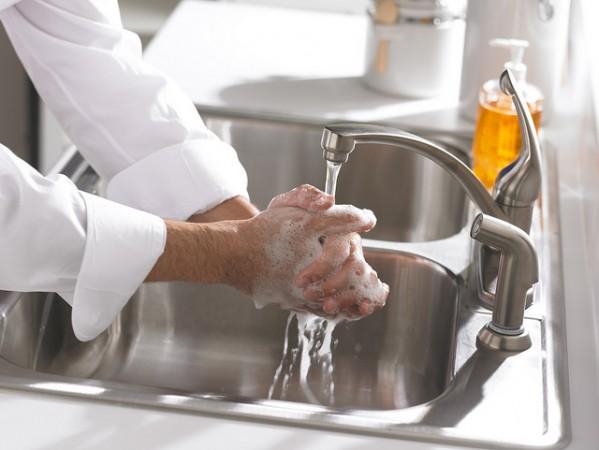Coronavirus can be contracted if an infected person coughs or sneezes in close proximity. Even droplets of cough on tables or any surface can carry a virus, leaving people vulnerable to infection. As a precautionary measure, sanitizers and face masks have been prompted to be saving the day, causing people to rush to pharmacies and stores to stock up on these essentials.
After a Hyderabad techie, living in Bengaluru was tested positive for Covid-19, government health officials are taking stringent measures to ensure the infection hasn't spread to others. From screening people in an apartment complex in Sarjapur Road to reaching out to people who were on board the Indigo flight with the Covid-19 victim, the officials are doing everything to contain the widespread of the disease in the city.
But there has been a flood of social media posts and WhatsApp forwards, causing panic among people even when there's no reason to be. Practicing general hygiene is essential to stay protected from the virus, but a lot of people are hoarding face masks and sanitizers to stay protected.

Panic buying isn't the solution
As a result of this, hospitals and medicals are running low on face masks and sanitizers, which is worrisome. The World Health Organisation has warned that global supply of face masks, sanitizers and other personal protective equipment, which is triggered by "rising demand, panic buying, hoarding and misuse." This is putting the lives of health workers around the world at risk.
"Without secure supply chains, the risk to healthcare workers around the world is real. Industry and governments must act quickly to boost supply, ease export restrictions and put measures in place to stop speculation and hoarding. We can't stop COVID-19 without protecting health workers first," WHO Director-General Dr Tedros Adhanom Ghebreyesus, said in a statement.
In Bengaluru, medicals are already running low on face mask and sanitizer supplies. International Business Times, India confirmed with a dozen pharmacies in the city that the supply of face masks and sanitizers has been irregular for the past few days. Despite that, medicals are selling hundreds of face masks.

Do face masks really help?
According to WHO, the prices of surgical masks have witnessed a sixfold increase and N95 respirators have trebled. Suppliers are running low on demand, and the highest bidders are getting the orders first. This is the cause of inflation in face mask prices. When people blindly fall for WhatsApp forwards, this can result in panic buying. But the question you should really be asking is if face masks are really helpful in protecting you against novel coronavirus.
First of all, surgical masks are not effective in keeping virus-carrying droplets away. These are used by doctors while examining patients as a preventive measure to keep droplets in, not the other way around. Additionally, doctors and medical staff use surgical masks in a clinical setting and for a short period of time before they dispose of them.
Coronavirus can be contracted when you touch a surface with the virus on it and then you touch your eyes or mouth. When you wear a face mask, you often touch your face to adjust the mask - sometimes without even sanitizing your hands. This can cause infection. So unless you're investing in a good mask, which is usually very expensive and require wearers to follow certain protocols, it is best to avoid face masks altogether. Use tissues while coughing and sneezing and dispose of them the right way.
Are sanitizers helpful?

Of course, they are. In fact, the solutions carrying at least 60 percent alcohol are effective in keeping your hands clean. But use them wisely while traveling, which is when there is a high risk of exposure. Making a habit of using sanitizers is great, but one can always use soap and water to clean hands thoroughly.
If you're not using sanitizers, it doesn't mean you are more likely to contract the novel coronavirus. Make it a habit to wash your hands with soap every hour, this should work just as well.

















